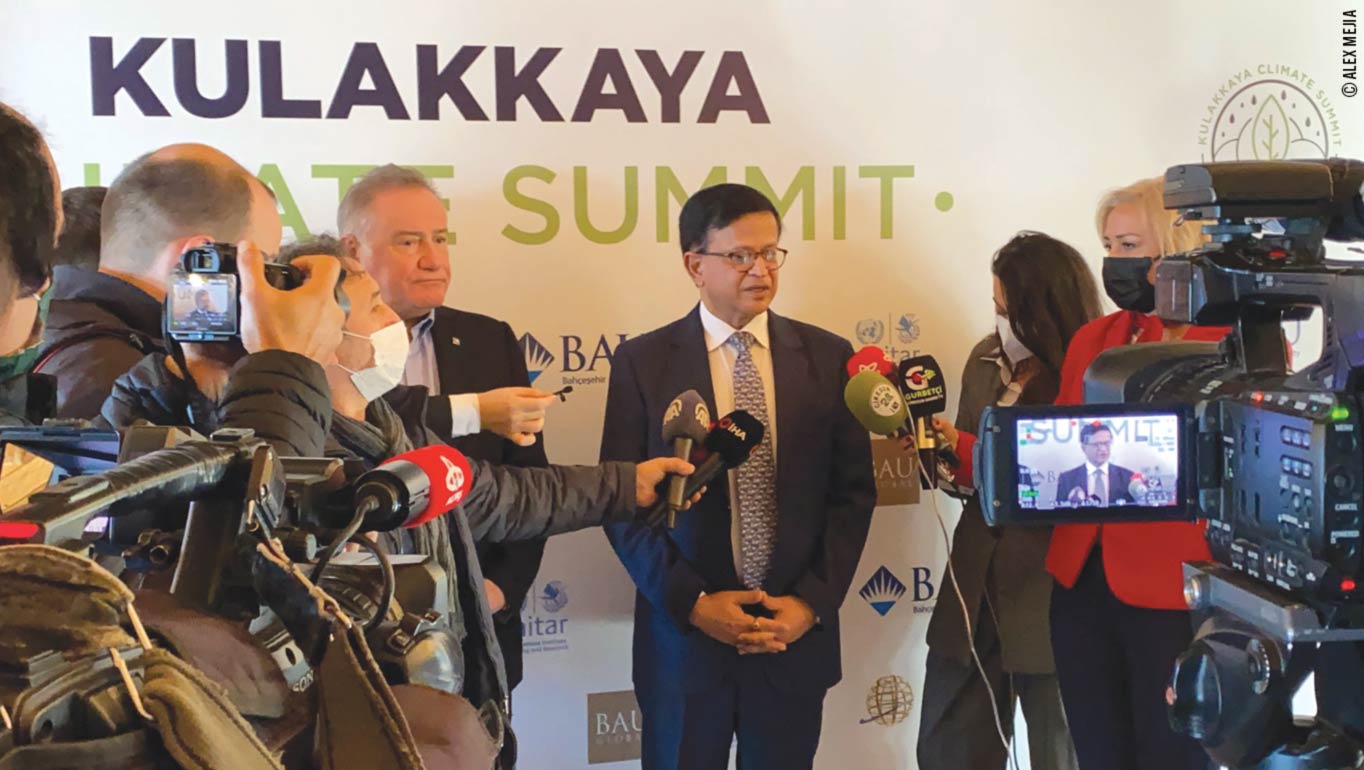ASG Nikhil Seth, the Executive Director of UNITAR, discusses his views on lifelong learning, on the importance of capacity building for Agenda 2030, and on how this pandemic has affected our ability to learn as professionals. Read his invitation to learn about his agency’s training portfolio and the opportunities it offers for UN staff members in Geneva and around the world.
Capacity building efforts of the United Nations, vis-a-vis Agenda 2030 and the SDGs
First, allow me to congratulate UN Today for focusing on issues of capacity building and lifelong learning, something that is an article of faith for me and for UNITAR. Technological advancement over the past decade has occurred at such a rate and SDG4 speaks to the critical importance of this approach.
From the 60s until the 90s we tended to look at development in silos: education policy, debt management, infrastructure, gender equality, macro issues, etc. These were all treated as separate issues. The United Nations recognized that problem and rallied the world towards a new vision of sustainable development, Agenda 2030, an individually-centered and integrated model.
If we look at our own lives, our own hopes, and aspirations, they are not in silos! We hope for a better life for ourselves, good health, good education for our children, and we are concerned for our environment. This integrated approach is the foundation of everything we do at UNITAR, and we must remember that without capacity building and knowledge, there would be no behavioral and attitudinal shifts.
The Coronavirus pandemic’s effect on our professional lives
This pandemic has affected our lives in so many ways. The increased use of technology has rendered online educational opportunities much more accessible, resulting in a great increase of people benefiting from these opportunities. However, it remains uncertain whether the qualitative issues of distance learning are fully known. Are those accessing education behind a monitor or screen learning as well as their counterparts, who have access to in-person facilities, teachers, and interactions?
However, there is a new reality. On example is that home learning has evolved into an important part of everyday life and the younger generations specifically have shown the ability to adapt to this new method. Now, as we enter the stage in which we are seeing the revival of face-to-face interactions, we should be able to reach the optimum mix in what we call “blended learning,” which is very promising. But regardless of these new realities, we must adapt our ability to learn as professionals and continue our professional growth.
UNITAR’s professional training for UN staff members
We have developed more than 270 courses in recent years, the majority of which are free and accessible to all. For instance, I have been pleasantly surprised to see a large number of senior, as well as younger UN staff members, present in our core diplomatic training sessions.
We offer several Massive Open Online Courses (MOOCs), the best example being the One UN Training Service Platform on climate change (uncclearn.org), which we developed along with 38 other UN entities. It has courses ranging from climate change 101 to those with a highly specialized focus. The platform has been extremely successful. Over a year ago we surpassed 100,000 certificates given, and our number of beneficiaries continues to grow exponentially. And, that is only one of our training platforms. I invite all our readers to explore additional opportunities at UNITAR, including a wide offer of SDG-related training.
I would also like to mention our microlearning courses, the result of partnering with EdApp, one of our private sector partners. Microlearning has allowed our users to access learning content that can be downloaded onto their smartphones – meaning you can take courses at your own pace even in regions where internet access is unstable or nonexistent, free of charge. The shortened length of every session and the accessible self-paced nature of the platform offer a great way to learn, and I invite our colleagues at the UN to take these short courses as well.
Through raising awareness of these incredible resources, hopefully more UN staff members will come to benefit from what UNITAR has to offer, as explained on our website. If there are particular fee-based courses that readers of UN Today are interested in, simply reach out to UNITAR and we will find ways to waive that fee.
Becoming a trainer in your area of specialization
All of us throughout our lives have acquired a kind of expertise that we want to be able to transmit, specifically to younger staff members, in order to short circuit what would otherwise be a very long learning process. While your desire to transmit what you know to others is important, your ability to do so depends on how you train yourself as a trainer. So, there is a need to develop a methodology:
How do people learn? How do you communicate information and what technology do you need to use to do that? What is the right pedagogical approach to adult learning? Indeed, you should go through the 101 of becoming trainers through a specialized ToT (training of trainers) seminar, so that you may become a knowledgeable trainer in your area of specialization. I encourage anyone that wants to share their knowledge to learn how to become a trainer. You will not regret it.



